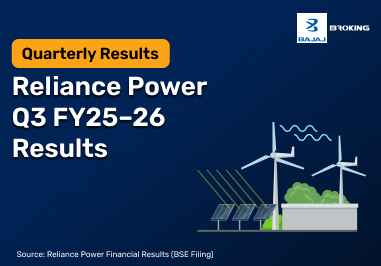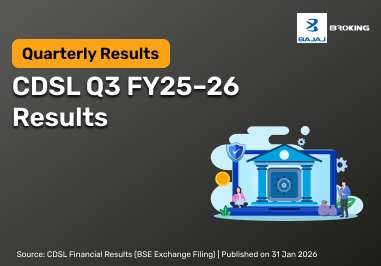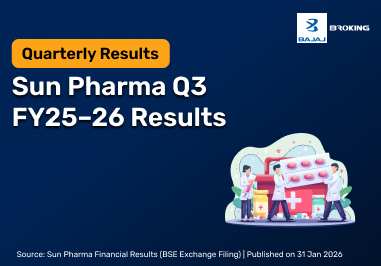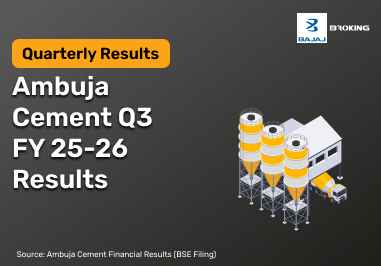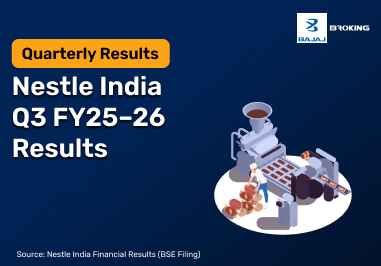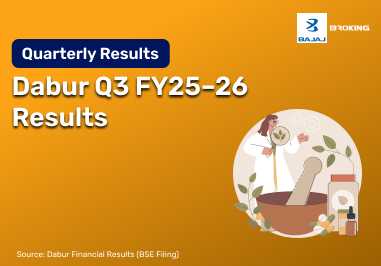What is an IPO?
An Initial Public Offering (IPO) is the process through which a privately-held company offers its shares to the public for the first time. This allows the company to raise significant capital from public investors. IPOs are typically launched by companies seeking to expand their operations, repay debt, or achieve other strategic goals. The IPO process involves underwriters, regulatory scrutiny, and extensive disclosures to ensure transparency for potential investors.
Types of IPO
When a company decides to go public, it can choose from the following three types of Initial Public Offerings (IPOs):
Fixed Price IPO
In this type, the company sets a fixed price for the shares being offered. Investors know the exact price before they subscribe. The price remains unchanged during the entire subscription period, giving clarity to investors upfront. However, demand is revealed only after the issue closes.
Book Building IPO
This type allows price discovery through investor bids within a specified price band. Investors place bids at prices they are willing to pay, and the final price is determined based on demand and the volume of bids received. This method is more flexible and market-driven, often leading to better price realisation for the issuer.
Dutch Auction IPO
Here, investors submit bids indicating the number of shares and the price they are willing to pay. The company then sets a single clearing price at which all successful bidders get shares. It promotes fairness and transparency by allowing market forces to determine the price.
Each IPO type suits different market strategies and investor preferences, helping companies raise capital in ways that align with their goals.
What is an FPO?
A Follow-on Public Offering (FPO) occurs when a company that is already publicly traded issues additional shares to the public. This is usually done to raise more capital for growth, debt repayment, or other financial needs. Unlike IPOs, FPOs involve companies that have already met regulatory requirements and have a track record in the stock market. FPOs can be advantageous for investors as they provide an opportunity to invest in a company with established market performance.
Types of FPO
A Follow-on Public Offer (FPO) helps a company raise additional funds or reduce its existing debt burden. There are two main types of FPOs:
Dilutive FPO
In this type, the company issues additional shares to the public. While the total value of the company stays constant, the increase in the number of shares lowers the earnings per share (EPS) and can also lead to a drop in share price. This method is used to raise fresh capital but results in dilution of ownership for existing shareholders.
Non-Dilutive FPO
This happens when major shareholders, such as founders or board members, sell their privately held shares to the public. No new shares are created, so the total number of outstanding shares remains the same. As a result, there’s no impact on the company’s EPS. It simply increases the number of shares available in the market.
How Important is an FPO for a Company?
An FPO plays a strategic role in a company’s growth and financial stability. It helps raise capital to fund expansion plans, repay debt, or meet regulatory obligations without relying on loans. Unlike IPOs, which are about entering the stock market, FPOs help companies build on that presence. In the context of IPO vs FPO, the latter can also help stabilise stock prices by increasing liquidity and investor interest. Moreover, FPOs often reflect a company’s positive outlook, giving existing shareholders confidence in its long-term vision.
How Important is an FPO for Investors?
FPOs offer investors a valuable opportunity to invest in companies with an established market presence. Compared to IPOs, FPOs come with more publicly available data, helping investors make informed decisions. In the IPO vs FPO comparison, FPOs are often seen as less risky due to the company’s proven track record. Additionally, FPOs can offer shares at a discounted rate to attract participation, which may enhance potential returns. They also allow existing shareholders to increase their stake and benefit from the company’s growth momentum.
How Important is an IPO for a Company?
IPOs are crucial for companies as they provide access to substantial capital, which can be used for various purposes such as expanding operations, funding research and development, and reducing debt. By going public, a company increases its visibility and credibility, which can attract more investors and business opportunities. Additionally, IPOs offer liquidity to early investors and employees, allowing them to realize the value of their equity holdings. However, going public also subjects the company to increased regulatory scrutiny and the pressures of meeting quarterly performance expectations.
How Important is an IPO for Investors?
For investors, upcoming IPOs represent an opportunity to invest in a company at an early stage, potentially leading to significant returns if the company performs well. IPOs allow investors to diversify their portfolios and participate in the growth of new and innovative companies. However, investing in IPOs also carries risks, as newly public companies may experience volatility and uncertain performance in the initial trading period. Therefore, thorough research and understanding of the company’s fundamentals are essential for making informed investment decisions.
IPO vs FPO: The Differences
Understanding the difference between IPO and FPO helps investors make informed decisions. Here is a comparative look at both:
Particulars
| IPO
| FPO
|
Timing
| Equity shares are issued to the public for the first time
| Equity shares are issued to the public after the company is already listed on the stock exchanges
|
Company
| Issued by privately-held companies
| Issued by publicly traded companies
|
Information Availability
| Information regarding the company is not easily available
| Information on the company is publicly available and can be accessed by anyone
|
Price Determination
| Offer price is determined by the company along with the lead managers to the issue based on various factors
| Equity shares are typically offered at the current market price or at a slight discount to the current market price
|
Underwriting
| Always involves underwriting by investment banks
| Underwriting is generally not involved
|
Regulatory Requirements
| Subject to rigorous regulatory scrutiny and disclosures
| Regulatory requirements are less stringent
|
Potential for Higher Returns
| Carries a high potential for capital appreciation
| Lower potential for capital appreciation
|
Risk
| Carries a much higher risk
| Comparatively lower risk
|
Difference #1: Purpose
IPO: Going Public for the First Time
The primary purpose of an IPO is to allow a private company to become a public company. By issuing an IPO, the company aims to raise capital from the public to fund its growth and expansion plans. It also provides an exit strategy for early investors and allows the founders to monetize their investments.
FPO: Raising Additional Capital
In contrast, FPOs are conducted by already publicly-listed companies that seek to raise more capital after their initial listing. These companies may need funds for various reasons such as expansion, debt repayment, or financing new projects. FPOs are essentially a way for existing shareholders to sell more shares to the public, and the company itself may not receive the proceeds.
Difference #2: Regulatory Requirements
IPO: Stringent Disclosure and Regulatory Requirements
Companies planning an IPO in India are subjected to rigorous regulatory scrutiny by the Securities and Exchange Board of India (SEBI). They must disclose detailed financial information, business plans, and corporate governance structures to ensure transparency and protect investors’ interests.
FPO: Reduced Regulatory Hurdles
FPOs, being offered by already listed companies, generally face fewer regulatory requirements compared to IPOs. While they still need to adhere to disclosure norms, the process is typically smoother and faster, as these companies have already established a track record with the stock market.
Difference #3: Price Determination
IPO: Price Discovery through Book Building
In an IPO, the price at which shares are offered to the public is determined through a process called ‘book building.’ Under book building, the company and its underwriters assess investor demand and set a price range. Investors then bid within this range, and the final IPO price is determined based on the demand generated during the bidding process.
FPO: Fixed Price Offering
In contrast, FPOs usually have a fixed price at which shares are offered to the public. This price is often set at a discount to the current market price to incentivize investors to participate. Unlike IPOs, there is no book building process involved in FPOs.
Difference #4: Market Impact
IPO: Greater Market Impact
The announcement and issuance of an IPO tend to have a more substantial impact on the stock market. It can generate significant media attention and excitement among investors, leading to increased market volatility.
FPO: Lesser Market Impact
FPOs, being a secondary offering by an already-listed company, generally have a lesser impact on the broader market. While they can still attract investor interest, the effects on market sentiment are usually milder than those of an IPO.
Difference #5: Use of Proceeds
IPO: Capital Infusion for the Company
Funds raised through an IPO go directly to the company, allowing it to finance growth initiatives, repay debts, invest in research and development, or make strategic acquisitions. IPOs are a crucial source of capital for companies in their early growth stages.
FPO: Shareholder Liquidity
In an FPO, the funds raised primarily benefit existing shareholders, such as promoters and early investors, who are selling their shares to the public. While the company may indirectly benefit from increased liquidity, the proceeds do not directly contribute to its capital.
Difference #6: Investor Participation
IPO: Open to All Investors
IPOs are open to all categories of investors, including retail investors, high-net-worth individuals, and institutional investors. Retail investors can participate with a minimum application amount, making IPOs accessible to a wide range of people.
FPO: Generally Open to All, but Priority to Existing Shareholders
FPOs are typically open to all categories of investors, but some FPOs may prioritise existing shareholders by offering them a certain quota or discount on shares. This encourages current investors to participate in the offering.
Difference #7: Timing and Market Conditions
The timing of an IPO is crucial, and companies often choose to go public during periods of favourable market conditions. A strong market can lead to a higher IPO price and better reception from investors.
FPO: More Flexibility in Timing
FPOs, being conducted by already listed companies, offer more flexibility in timing. These companies can choose to issue FPOs when they believe it is the right time, based on their specific capital needs and market conditions.
Difference #8: Listing Requirements
Companies opting for an IPO must meet specific listing requirements, such as minimum capital, profitability, and corporate governance standards, to get listed on the stock exchange for the first time.
FPOs are conducted by companies that have already met the listing requirements during their IPO. Therefore, they do not need to fulfil the initial listing criteria again.
Additional Read: How does an IPO work?
Wrapping Up
In summary: IPOs and FPOs constitute two distinct methods that Indian companies utilise to secure capital from the stock market. Both encompass public share issuance; however, they serve different purposes– boasting varying regulatory requirements, pricing mechanisms, and impacts on the industry itself. Grasping these differences proves vital for investors eager to engage in such offerings; this knowledge better equips them to make informed decisions congruent with their investment objectives and risk tolerance.





